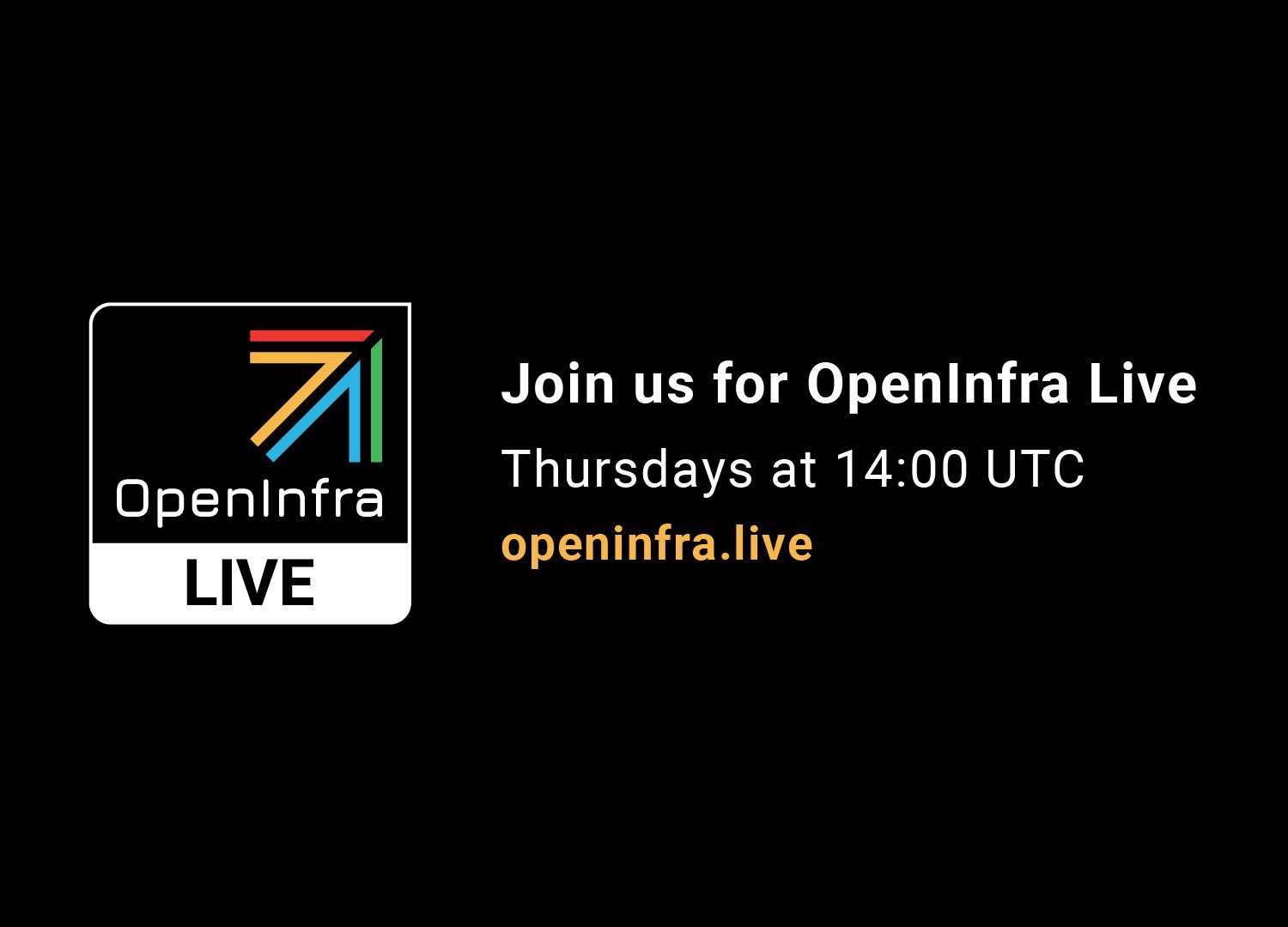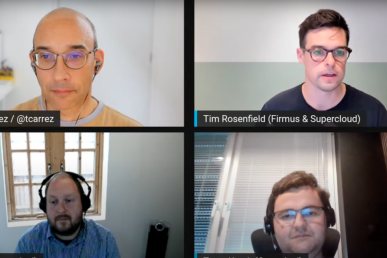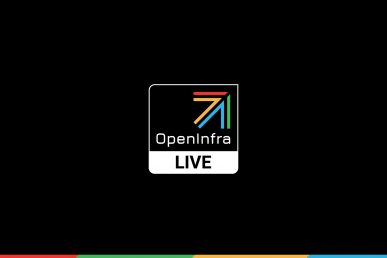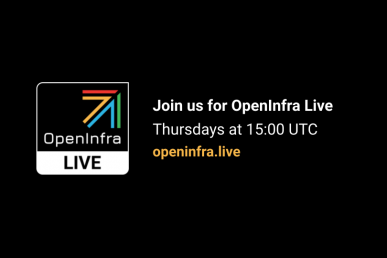OpenInfra Live is a new, weekly hour-long interactive show streaming to the OpenInfra YouTube channel Thursdays at 14:00 UTC (9:00 AM CT). Episodes feature more OpenInfra release updates, user stories, community meetings, and more open infrastructure stories.
The Kubernetes steering committee (SC) and OpenStack technical committee (TC) meet regularly to talk about cross-community learnings and collaboration opportunities. Join members of both governance bodies to ask questions about integration, cross-project support and how you can stay updated on the latest developments.
Enjoyed this week’s episode and want to hear more about OpenInfra Live? Let us know what other topics or conversations you want to hear from the OpenInfra community this year, and help us to program OpenInfra Live! If you are integrating OpenStack with Kubernetes or helping your customers overcome the challenges discussed in this episode, join the OpenInfra Foundation to help guide OpenStack software integration and to support the global community.
This week’s episode was hosted by Kendall Nelson, member of the OpenStack TC and diablo_rojo on IRC, who kicked things off by addressing the elephant in the room:
Do you think that Kubernetes is replacing OpenStack?
Ghanshyam Mann, chair of the OpenStack TC and gmann on IRC, said that both technologies solve similar problems, but in different ways. The key difference, he says, is looking at the use cases for the technology implementation.
“OpenStack is open infrastructure and Kubernetes is container orchestration,” he said. “Based on your customer requirements and what components you want to deliver, you can use them separately or combine them.”
He then highlighted the combined use case, to further explain how they are complementary, not mutually exclusive.
“You can use Kubernetes on top of OpenStack, have OpenStack as cloud provider or have Kubernetes cluster on bare metal using OpenStack Magnum,” he said. “If you know that OpenStack can be complex in managing, deploying or upgrading, you can use Kubernetes to deploy OpenStack to help you.”
How do we make Kubernetes and OpenStack work better together?
Davanum Srinivas, member of the Kubernetes SC and dims on the Kubernetes Slack, started his journey in the OpenStack community where Magnum was started (a way to run Kubernetes on top of OpenStack), and then he started to identify ways that the technologies could work better together.
“We started a project, Cloud Provider OpenStack, where we would think about the best ways to integrate these two projects together using the base services that are in OpenStack and exposing that to things running in Kubernetes,” he said.
Jay Bryant, says that while Kubernetes is focused on workloads and getting them available, OpenStack’s maturity is in the infrastructure realm.
“[OpenStack] focuses on infrastructure, managing it and making it available while you have the workload available through Kubernetes,” he said. “This journey from the virtualization world to the container world has happened really fast and a lot of customers are trying to catch up, so a lot of them can’t have an either / or environment.”
Nelson agreed, saying “you still need to run Kubernetes somewhere and OpenStack is a viable option for that infrastructure you need.”
With the elephant in the room out of the way, the panel went on to discuss several other questions that are commonly asked as well as from the live audience:
- What would be useful additions to the current set of Openstack/Kubernetes infrastructure that would help users?
- What’s missing to make it easier for organizations to run their own infrastructure?
- How do you solve issues with maintaining basic maintenance to the core software?
- What are some of the biggest focuses/struggles now that both communities are past the hype curve?
- What advice does the OpenStack community have for the Kubernetes community as it matures?
- How are OpenStack and Kubernetes dealing with the CentOS to Rocky Linux change?
- Is Kubernetes supported on Rocky Linux?
- How can the two communities work together moving forward?
- What are some projects on the Kubernetes roadmap?
- How to get involved in either of the two communities?
If you want to connect with the leaders from these communities and learn how you can start contributing, join the OpenStack IRC channels or the Kubernetes Slack. Here are the handles for today’s participants:
- Jay Bryant, OpenStack Technical Committee: jungleboyj
- Bob Killen, Kubernetes Steering Committee: mrbobbytables
- Ghanshyam Mann, OpenStack Technical Committee: gmann
- Kendall Nelson, OpenStack Technical Committee: diablo_rojo
- Davanum Srinivas, Kubernetes Steering Committee: dims
Next Episode on #OpenInfraLive
Join us as members from the Bare Metal Special Interest Group (SIG) join us to discuss how Ironic works to simplify many of the hardships physical bare metal operators deal with on a daily basis, including an overview of the project, project roadmap, and use cases of Ironic in production.
Tune in on Thursday, August 19 at 1400 UTC (9:00 AM CT) to watch this #OpenInfraLive episode: Bare Metal – Ironic in Production.
You can watch this episode live on YouTube, LinkedIn and Facebook. The recording of OpenInfra Live will be posted on OpenStack WeChat after each live stream!
Like the show? Join the community!
Catch up on the previous OpenInfra Live episodes on the OpenInfra Foundation YouTube channel, and subscribe for the Foundation email communication to hear more OpenInfra updates!
- OpenStack Zed: The End of the Alphabet, The Beginning of a New Era | OpenInfra Live Recap - October 6, 2022
- Around the World with OpenInfra Events | OpenInfra Live Recap - September 22, 2022
- Making VDI a first-class citizen in the OpenStack world | OpenInfra Live Recap - August 25, 2022

)










